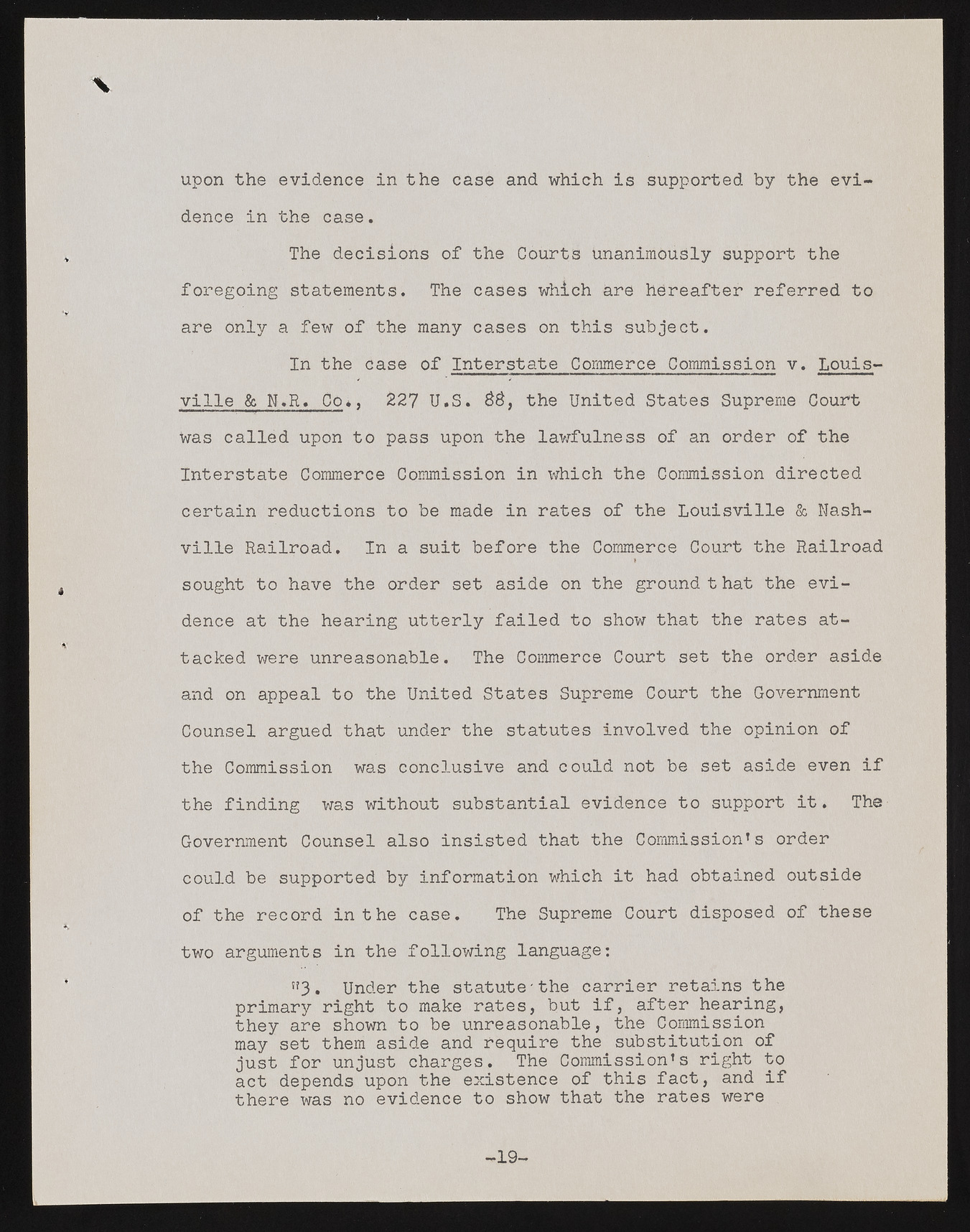Copyright & Fair-use Agreement
UNLV Special Collections provides copies of materials to facilitate private study, scholarship, or research. Material not in the public domain may be used according to fair use of copyrighted materials as defined by copyright law. Please cite us.
Please note that UNLV may not own the copyright to these materials and cannot provide permission to publish or distribute materials when UNLV is not the copyright holder. The user is solely responsible for determining the copyright status of materials and obtaining permission to use material from the copyright holder and for determining whether any permissions relating to any other rights are necessary for the intended use, and for obtaining all required permissions beyond that allowed by fair use.
Read more about our reproduction and use policy.
I agree.Information
Digital ID
Permalink
Details
Member of
More Info
Rights
Digital Provenance
Publisher
Transcription
\ upon the evidence in the case and which is supported by the evidence in the case. v. The decisions of the Courts unanimously support the foregoing statements. The cases which are hdreafter referred to **? are only a few of the many cases on this subject. In the case of Interstate Commerce Commission v. Louisville & N.R. Co*, 227 U.S. the United States Supreme Court was called upon to pass upon the lawfulness of an order of the Interstate Commerce Commission in which the Commission directed certain reductions to be made in rates of the Louisville & Nashville Railroad. In a suit before the Commerce Court the Railroad t sought to have the order set aside on the ground t hat the evidence at the hearing utterly failed to show that the rates at- tacked were unreasonable. The Commerce Court set the order aside and on appeal to the United States Supreme Court the Government Counsel argued that under the statutes involved the opinion of the Commission was conclusive and could not be set aside even if the finding was without substantial evidence to support it. The Government Counsel also insisted that the Commission’s order could be supported by information which it had obtained outside of the record in the case. The Supreme Court disposed of these two arguments in the following language: ’ ”3. Under the statute'the carrier retains the primary right to make rates, but if, after hearing, they are shown to be unreasonable, the Commission may set them aside and require the substitution of just for unjust charges. The Commission’s right to act depends upon the existence of this fact, and if there was no evidence to show that the rates were - 1 9 -

